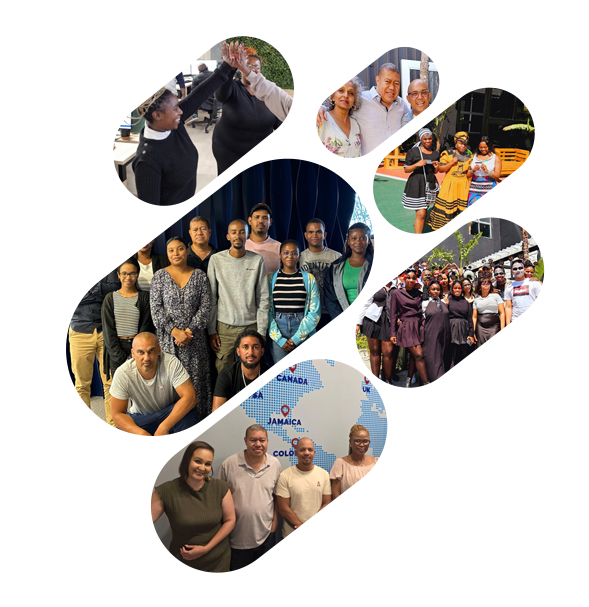
Choosing the right career can be intimidating, whether you are a student preparing for your future, a recent graduate exploring possibilities, or someone who is considering changing careers. The initial question that many face is: “How do I choose a career that matches my objectives?”
The answer lies in self-reflection, research, and planning. A career is more than just earning a living; it is about choosing a path that aligns with your interests, values, and future goals. Individual decisions can be made confidently when following a systematic, explicit process.
This blog provides you with an understanding of how to find the right career path, and positive messages to understand the detailed step-by-step approach to choosing the right path.
What Is an Ideal Career Path?
The right career path is a combination of your passions, skills, values, and what is feasible in the employment market. It is more than just what you do in your current job; it is a lifelong journey of development, learning, and personal satisfaction.
When people wonder how to pick the right career, they often focus only on salary or job titles. But the truth is, the “ideal” career should:
- Match your strengths and skills.
- Align with your personal values and interests.
- Offer opportunities for growth and progression.
- Provide stability and satisfaction in the long run.
The perfect career doesn’t mean every day will be easy, but it ensures you’re on a path where challenges feel meaningful and successes are rewarding.

Finding Your Perfect Career: A Step-by-Step Guide
The journey to figuring out how to decide what career is right for you requires more than guesswork. Here’s a practical nine-step guide to help you move forward with confidence.
Step 1: Conduct a Deep Self-Assessment
Before you can decide how to pick a career, you need to know yourself well. A self-assessment involves reflecting on your personality, interests, and motivators.
Ask yourself:
- What subjects or activities excite me the most?
- Do I enjoy working with people, technology, or ideas?
- Am I motivated by creativity, problem-solving, or helping others?
You can also take personality assessments (like the Myers-Briggs Type Indicator or Holland Code) to gain insights. These tools highlight patterns that can guide you in hoosing a career that suits your strengths and preferences.

Step 2: Define Your Career Goals
Once you understand yourself better, the next step is to set clear goals. Knowing your destination makes it easier to choose the right path..
Some questions to ask:
- Do I want a job with financial stability?
- Am I aiming for leadership roles in the future?
- Do I want a career that offers flexibility and a good work-life balance?
- Do I aspire to travel, work internationally, or make a social impact?
Setting SMART goals (Specific, Measurable, Achievable, Relevant, Time-bound) ensures your career choices align with what you want in the long run.
Step 3: Evaluate Your Strengths and Skills
Your skills are a significant factor in how to know what career to choose. Think about both hard skills (technical abilities like coding, writing, or accounting) and soft skills (communication, teamwork, adaptability).
Examples:
- If you’re good at problem-solving and critical thinking, careers in IT or engineering might suit you.
- If you excel at empathy and communication, careers in healthcare or customer care jobs may be a good fit.
This step also helps you identify gaps—skills you need to develop to pursue your ideal career.

Step 4: Explore Potential Career Paths
Once you know your skills and goals, research potential career paths. Wondering how to pick the right job? Start by exploring industries, roles, and growth trends.
Ways to explore:
- Research job descriptions on career websites.
- Read case studies about professionals in fields that interest you.
- Look into industries with strong growth (like technology, healthcare, and renewable energy).
- Attend career fairs, webinars, or industry events.
This exploration gives you a clearer picture of opportunities and helps you avoid blindly following trends that may not align with your values.
Step 5: Evaluate Alignment with Your Values
Your career should reflect what matters most to you. If you value creativity, a highly rigid role may not satisfy you. If you value security, a high-risk startup might feel stressful.
To decide how to choose the right job, reflect on:
- Work environment (corporate, flexible, remote, creative).
- Impact (social, environmental, or financial).
- Lifestyle (hours, travel, location).
For example, if you value helping others, jobs such as social work, teaching, or customer service can be deeply fulfilling.
Step 6: Gain Practical Experience
Sometimes, the best way to know if a career suits you is to try it. Internships, volunteering, part-time work, or shadowing professionals give you hands-on exposure.
Benefits of practical experience:
- You learn the realities of day-to-day work.
- You discover whether you enjoy the work environment.
- You gain skills and connections that can strengthen your resume.
This step is beneficial if you’re still unsure about how to choose the right career—experience often brings clarity.

Step 7: Seek Guidance from Mentors and Professionals
It’s easy to feel lost while choosing a career, which is why guidance is invaluable. Mentors, career coaches, or professionals in your field can provide insights you won’t find in job descriptions.
They can help you:
- Understand industry expectations.
- Avoid common mistakes.
- Make realistic decisions about education or training.
Networking also plays a significant role—informational interviews with professionals can provide you with an insider's view of a career path.
Step 8: Make an Informed Decision
After self-assessment, research, and experience, it’s time to make a decision. Many people hesitate at this stage, asking, “How do I choose the right career?”
Here are tips for making a confident choice:
- Compare your shortlisted options against your goals and values.
- Consider salary, growth, and long-term stability—but balance them with job satisfaction.
- Remember that no decision is permanent; careers evolve with time.
Making an informed decision doesn’t mean eliminating all risks, but it does mean you’ve thought carefully before moving forward.
Step 9: Develop a Plan and Take Action
Once you decide how to pick the right career, it’s time to act. A professional development plan can help you map out the steps:
- Identify the education, training, or certifications required.
- Build a timeline for acquiring necessary skills.
- Start networking within the industry.
- Apply for internships or entry-level roles to get started.
By creating a structured plan, you ensure your career decisions translate into real progress.
Final Thoughts
When it comes to how to choose the right career, there’s no one-size-fits-all answer. The process is deeply personal and requires a balance of self-awareness, research, and practical action. Your ideal career will reflect who you are, what you value, and where you want to go. By following these nine steps, you’ll move closer to a career that not only meets your goals but also brings you satisfaction and growth.
Remember, choosing a career isn’t just about the job you start with—it’s about the journey you take. With clear goals, continuous learning, and the right mindset, you can build a career that truly fits your aspirations.
Frequently Asked Questions (FAQs)
Should I consider salary when choosing a career?
Yes, salary is an important factor, but it shouldn’t be the only one. Balance pay with job satisfaction, growth opportunities, and alignment with your values.
What role does job satisfaction play in choosing a career?
Job satisfaction affects your motivation, productivity, and long-term career success. Choosing a career that aligns with your interests and values usually leads to higher satisfaction.
How do I evaluate job market trends when choosing a career?
Research industry growth statistics, demand for roles, and future trends. This ensures the career you pick will have opportunities for the long term.
How do I know if a career is a good fit for me long-term?
A good fit combines skills, values, and goals. Test it through internships or short-term roles. If you feel motivated and engaged, it’s likely an intense long-term match.
 SA
SA Canada
Canada Colombia
Colombia India
India Jamaica
Jamaica Philippines
Philippines UK
UK US
US



